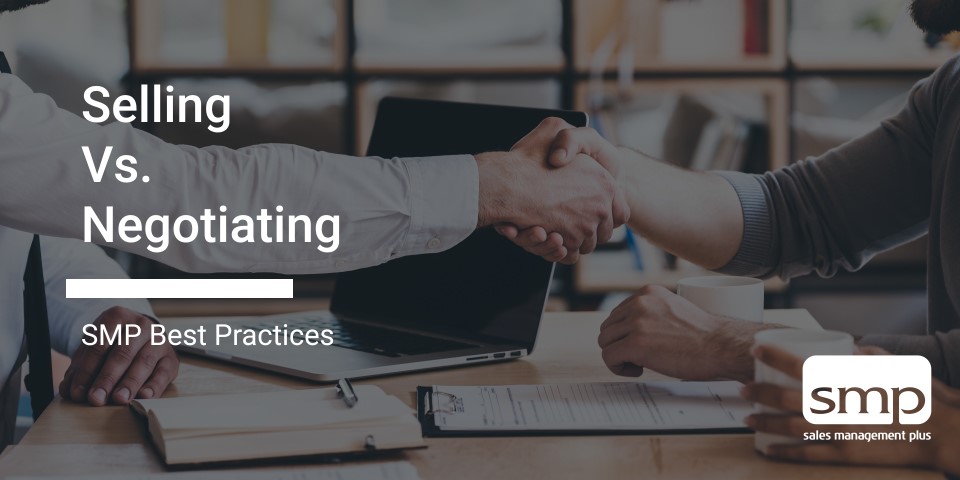
Having worked with many distributors over the years, one observation about many distributor salespeople are that they are customer pleasers. Most are profit adverse.
Sure, many are on commission. And many of those commission plans are built around a percent of gross margin but, as soon as a customer hints that they want to negotiate, salespeople are willing to lower the margin or VE the project … even if the product is on a SPA or the company has a contract with the customer.
Why you ask?
In my humble opinion, it’s that they are conflict adverse, they are afraid that saying “no” will put all of their business with that contractor at risk.
In reality, it probably relates to:
- Lack of sales training
- Lack of understanding the need for company profitability
- Lack of confidence
- Lack of understanding their, and their company’s, value
- Lack of product training
Just for starters.
Recently I was speaking with Jason Birch from Sales Management Plus (SMP) and he commented that SMP has heard the same from their prospects and clients and shared some thoughts on the subject.
Selling Vs. Negotiating
My company is frequently asked to provide distribution sales training and new technology advice to distribution sales and executive teams. One of the things we hear from distributors in these sessions is that their reps lack negotiation skills. It seems that many deals come off the rails as soon as objections arise. Here are some examples of comments distributors have made about their sales reps’ negotiation skills:
- We’re fine until price comes up and then my reps give too much away.
- My reps don’t seem to know how to drive bids and quotes to close.
- There are too many gives and gets in each deal.
- We’re always surprised by something from our customers when it comes to closing deals.
But is the problem really in negotiation, or is the problem in their sales process? You can’t successfully negotiate a deal that you didn’t successfully sell in the first place. Negotiating requires some skill, but if you’ve set up your sales process around a trackable, manageable and accountable system for all of your reps, negotiation become much more mechanical than skilled.
The reason for the confusion around selling processes and negotiations is that many distribution sales managers were not given the right software and tools to run a sales process in the first place. So, whenever a surprising objection arises, they go into negotiation mode rather than analyzing the sales process.
A much better way to address objections is not to start negotiating on price discounts and service offerings but instead spend time in your sales process really understanding the needs of your customers. The time to address objections is long before they arise, and you do that with regular customer interactions led with data around their own activities, needs and interactions. Happy customers in good relationships just don’t negotiate that much.
When You Should be Selling
Here are some situations that are better dealt with in your sales interactions rather than as a negotiation.
- Your customer hasn’t yet understood your value-added position or the specific benefits of your product line(s). If you try to negotiate before the customer understands the value you bring, you are only left with price discounts as a lever.
- Your rep cannot describe exactly how deals get made. Who makes the final approval? Who needs to see the technical specs? Who takes delivery? Who signs and sends the checks? You have to understand the customer process long before you negotiate a close or you will face too many surprises in your pipeline.
- Questions keep coming up in the negotiations around products, processes, service, delivery, and other areas. These are better addressed in regular interactions with customers rather than at the close of an individual deal. Unfortunately, most distributors don’t use CRM to guide their sales processes, so they haven’t driven the important activities and conversations until it is too late.
- Your reps keep asking for concessions sales management will never allow. Some things are just not negotiable, or even attainable, and it is better to move on from the sale earlier in the process than later rather than trying to give away something that just isn’t worth it to your company in the long run.
When You Should be Negotiating
When you’ve been proactive in your customer interactions (i.e., have regular conversations with your customers long before it’s time for them to purchase) and you actually are ready to negotiate, it’s important to outline the typical processes you are comfortable with, so your reps understand their negotiation parameters. Here are some examples:
- Your rep has understood the competitive activity in the account and knows that a new trade-off is necessary to move the deal forward. Give them a specific list of gives and gets, especially in larger deals, that you are willing to negotiate.
- The customer wants to do business with you, but they are hung up on a particular aspect of the deal such as price, availability, service, etc. Coach your reps to have a plan B or even plan Z that meets the customer’s needs without giving away too much.
Only Negotiate When Appropriate
When you run a tight sales process, you can provide some specific guidelines for your reps around negotiations.
- Track, manage and regularly discuss their sales interactions and customer meetings inside of your CRM. The best way to avoid tough negotiations is by understanding your customer. Negotiations are a poor substitute for good selling.
- Avoid discounting. A surprisingly few number of important deals hinge on having the lowest price. Too often, reps give away pricing rather than ask the really tough questions around service, product lines and competitive involvement.
- Trial close along the way. Trial closing and deeper discussions can surface objections earlier in the sales cycle rather than during the negotiation phase. This is true of regular customer visits as well. You might be surprised what you would find out if you asked your customers, “what are the three things that might prevent you from ordering from us next time?” It’s better to find out those three things early than when it’s time to place that order. In the worst case, you’ll gain new insights, competitive information, product and service ideas and more. In the best case, you’ll avoid those difficulties when it comes time to negotiate.
Take Aways
- Between my observations and what Jason shared, it sounds like distributor salespeople, and sales management, could really benefit from sales coaching. Salespeople need it; sales management needs to improve their skills. I’d suggest siting in on our complimentary sales coaching webinar on Tuesday, March 21st at 11:30 EDT. (And if you can’t attend, or it’s after March 21, and you want the link to the recording, email me.)
- Salespeople need to be inquisitive. They need to ask lots of questions and document the feedback so that sales strategizing can take place.
- In a world embracing data and converting it into information that can provide knowledge, gaining a greater handle on your sales process, especially for projects, is critical for longer-term success.
- Tools help reinforce skills, and sales processes are needed. SMP has some awesome sales analytics tools built into its platform that can help sales managers and salespeople.



Leave a Reply